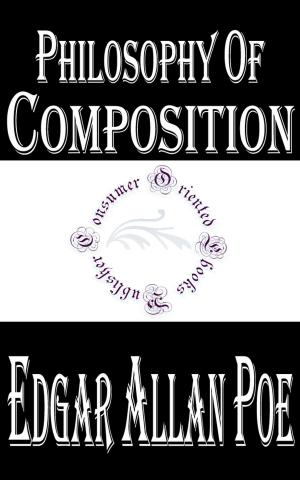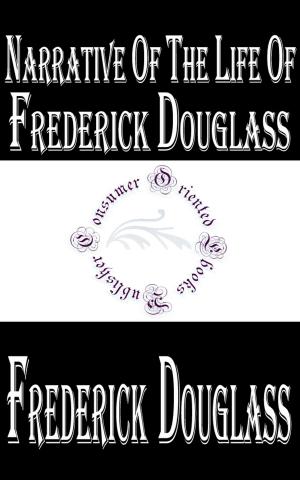Mark Of Cain (Annotated)
Mystery & Suspense, Espionage, Fiction & Literature, Action Suspense, Classics| Author: | Andrew Lang | ISBN: | 1230000249156 |
| Publisher: | Consumer Oriented Ebooks Publisher | Publication: | June 30, 2014 |
| Imprint: | Language: | English |
| Author: | Andrew Lang |
| ISBN: | 1230000249156 |
| Publisher: | Consumer Oriented Ebooks Publisher |
| Publication: | June 30, 2014 |
| Imprint: | |
| Language: | English |
*This Book is annotated (it contains a detailed biography of the author).
*An active Table of Contents has been added by the publisher for a better customer experience.
*This book has been checked and corrected for spelling errors.
One of Lang's best known works!
In the Strangers' Room of the Olympic Club the air was thick with
tobacco-smoke, and, despite the bitter cold outside, the temperature
was uncomfortably high. Dinner was over, and the guests, broken up into
little groups, were chattering noisily. No one had yet given any sign of
departing: no one had offered a welcome apology for the need of catching
an evening train.
Perhaps the civilized custom which permits women to dine in the presence
of the greedier sex is the proudest conquest of Culture. Were it not
for the excuse of "joining the ladies," dinner-parties (Like the
congregations in Heaven, as described in the hymn) would "ne'er break
up," and suppers (like Sabbaths, on the same authority) would never end.
"Hang it all, will the fellows _never_ go?"
So thought Maitland, of St. Gatien's, the founder of the feast. The
inhospitable reflections which we have recorded had all been passing
through his brain as he rather moodily watched the twenty guests he had
been feeding--one can hardly say entertaining. It was a "duty dinner" he
had been giving--almost everything Maitland did was done from a sense of
duty--yet he scarcely appeared to be reaping the reward of an approving
conscience. His acquaintances, laughing and gossipping round the
half-empty wine-glasses, the olives, the scattered fruit, and "the ashes
of the weeds of their delight," gave themselves no concern about the
weary host. Even at his own party, as in life generally, Maitland felt
like an outsider. He wakened from his reverie as a strong hand was laid
lightly on his shoulder.
"Well, Maitland," said a man sitting down beside him, "what have _you_
been doing this long time?"
"What have I been doing, Barton?" Maitland answered. "Oh, I have been
reflecting on the choice of a life, and trying to humanize myself!
Bielby says I have not enough human nature."
"Bielby is quite right; he is the most judicious of college dons and
father-confessors, old man. And how long do you mean to remain his pupil
and penitent? And how is the pothouse getting on?"
Frank Barton, the speaker, had been at school with Maitland, and ever
since, at college and in life, had bullied, teased, and befriended him.
Barton was a big young man, with great thews and sinews, and a broad,
breast beneath his broadcloth and wide shirt-front. He was blonde,
prematurely bald, with an aquiline commanding nose, keen, merry blue
eyes, and a short, fair beard. He had taken a medical as well as other
degrees at the University; he had studied at Vienna and Paris; he was
even what Captain Costigan styles "a scoientific cyarkter." He had
written learnedly in various Proceedings of erudite societies; he had
made a cruise in a man-of-war, a scientific expedition; and his _Les
Tatouages, Étude Médico-Lêgale_, published in Paris, had been commended
by the highest authorities. Yet, from some whim of philanthropy, he had
not a home and practice in Cavendish Square, but dwelt and labored in
Chelsea.
*This Book is annotated (it contains a detailed biography of the author).
*An active Table of Contents has been added by the publisher for a better customer experience.
*This book has been checked and corrected for spelling errors.
One of Lang's best known works!
In the Strangers' Room of the Olympic Club the air was thick with
tobacco-smoke, and, despite the bitter cold outside, the temperature
was uncomfortably high. Dinner was over, and the guests, broken up into
little groups, were chattering noisily. No one had yet given any sign of
departing: no one had offered a welcome apology for the need of catching
an evening train.
Perhaps the civilized custom which permits women to dine in the presence
of the greedier sex is the proudest conquest of Culture. Were it not
for the excuse of "joining the ladies," dinner-parties (Like the
congregations in Heaven, as described in the hymn) would "ne'er break
up," and suppers (like Sabbaths, on the same authority) would never end.
"Hang it all, will the fellows _never_ go?"
So thought Maitland, of St. Gatien's, the founder of the feast. The
inhospitable reflections which we have recorded had all been passing
through his brain as he rather moodily watched the twenty guests he had
been feeding--one can hardly say entertaining. It was a "duty dinner" he
had been giving--almost everything Maitland did was done from a sense of
duty--yet he scarcely appeared to be reaping the reward of an approving
conscience. His acquaintances, laughing and gossipping round the
half-empty wine-glasses, the olives, the scattered fruit, and "the ashes
of the weeds of their delight," gave themselves no concern about the
weary host. Even at his own party, as in life generally, Maitland felt
like an outsider. He wakened from his reverie as a strong hand was laid
lightly on his shoulder.
"Well, Maitland," said a man sitting down beside him, "what have _you_
been doing this long time?"
"What have I been doing, Barton?" Maitland answered. "Oh, I have been
reflecting on the choice of a life, and trying to humanize myself!
Bielby says I have not enough human nature."
"Bielby is quite right; he is the most judicious of college dons and
father-confessors, old man. And how long do you mean to remain his pupil
and penitent? And how is the pothouse getting on?"
Frank Barton, the speaker, had been at school with Maitland, and ever
since, at college and in life, had bullied, teased, and befriended him.
Barton was a big young man, with great thews and sinews, and a broad,
breast beneath his broadcloth and wide shirt-front. He was blonde,
prematurely bald, with an aquiline commanding nose, keen, merry blue
eyes, and a short, fair beard. He had taken a medical as well as other
degrees at the University; he had studied at Vienna and Paris; he was
even what Captain Costigan styles "a scoientific cyarkter." He had
written learnedly in various Proceedings of erudite societies; he had
made a cruise in a man-of-war, a scientific expedition; and his _Les
Tatouages, Étude Médico-Lêgale_, published in Paris, had been commended
by the highest authorities. Yet, from some whim of philanthropy, he had
not a home and practice in Cavendish Square, but dwelt and labored in
Chelsea.















